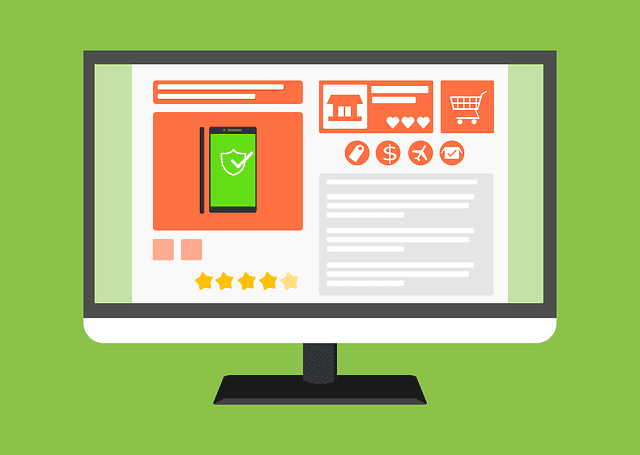8 Crucial Online Shopping Safety Tips
Online shopping gives us so many options. It’s easy, it’s fun, and it breaks geographical barriers. Many sellers offer fast shipping and exciting bargains. There is absolutely no reason to not shop online. Except one – hackers. Since you need to enter your payment details on the website, what if a hacker steals your credit card information? There have been several phishing attempts and many people have lost their data. How can you be safe while buying items online shopping? Here are some online shopping safety tips to keep you covered from malicious entities stealing your precious data.

8 Crucial Online Shopping Safety Tips
8 Crucial Online Shopping Safety Tips
Following the tips below will allow you to purchase your favorite items online without having to worry about getting scammed or having your credit card details stolen.
Use trusted websites
When you search online, you will see a number of websites selling the same product. It is always best to use a trusted website. Websites like Amazon are trusted over the world and you can safely buy things there. Besides, Amazon practically carries everything you need so you don’t need to look at other websites for most things. If you can’t find a specific thing on Amazon and want to look elsewhere, make sure you select a reliable website.
Lock sign
If you can’t find something on your preferred websites, you should look at other websites. But how can you know if they are trustworthy? When you open the website, look at the address bar/status bar. You will see the symbol of a padlock in the address bar or status bar and its URL will start HTTPS instead of HTTP. A lock sign means that the website is safe to transact on. Don’t give your credit card details to anyone over email. Even if it supposedly comes from the website you are trying to buy from. Always enter the relevant details on the web portal itself.
Monitor Your Bank Statements
Make sure you keep checking your bank statements. If you notice anything suspicious, it is best to report it on time. If any credit card charges look fishy, don’t pay the charges unless you know it is a purchase made by you. You get 30 days to notify the bank about any possible problems so it’s best to keep checking your statements.
Don’t Use Public Hotspots
Public hotspots are dangerous as there might be hackers lurking behind them. If a hacker sets up a free Wi-Fi hotspot and you use it, they can see every bit of data you send over that connection. It’s always best to rely on your mobile data when you’re on the go. And if you need to use a public hotspot, make sure you use a VPN. A VPN will encrypt your traffic and keep you safe from hackers. This applies to all free hotspots available in restaurants and airports as well.
Use a Strong Password
Shopping websites will allow you to create an account. When you register on such websites, make sure you use a strong password. If you use the same password for all accounts, you shouldn’t use it for shopping. If someone gets hold of your password on other accounts, they will be able to open your information on the shopping website and access your payment details. This information can be used for malicious intent. Always use a different password for each account and make sure you make it strong. If you can’t remember passwords, you can use a good password manager.
Keep your Computer Clean
Even if you follow all security measures, hackers can still get access to your details. If you have spyware installed on your computer, it can send your login details and bank/credit card details to hackers. So make sure you install a good anti-virus program on your computer. It will detect and remove viruses and spyware from your system.
Use a Good VPN
A VPN will not just protect you from hackers on public hotspots but also from hackers that are trying to sniff your data on your private connection as well. It encrypts all your data so even if the hacker launches a man in the middle attack to grab your data packets, it will be almost impossible for them to break open the encryption. For this, make sure you get a VPN that offers 256-bit encryption.
Follow Best Practices
You can protect yourself by using a good VPN and antivirus but you also need to stay cautious of fraudulent activities. If a website asks for additional personal information that is not really required to make a purchase, don’t trust it. For example, if they ask for social security number and date of birth, don’t buy anything from them and look for a trusted website instead. Also, after you make the purchase, log out from your account.
Interesting Online Shopping Trends
According to BigCommerce.com, 67% of Millennials prefer to shop on online rather than in-store. Here are some other interesting facts:
- 51% of Americans prefer to shop online
- 96% of Americans with internet access have made an online purchase in their life.
- Ecommerce is growing 23% year-over-year.
Shopping Safely Online – Extra Tips
The following video, courtesy of NordVPN, provides additional information on how to conduct your online shopping in a secure matter.
8 Crucial Online Shopping Safety Tips – Wrap Up
Online shopping is great and opens up many new possibilities. Things that were not available locally until a few years ago can easily be ordered online. However, just make sure you use trusted services. And if something looks too good to be true, don’t click on the link – it might download a virus on your computer. While there are several hackers trying to steal your financial data, you can keep them all away by exercising a few precautions.





